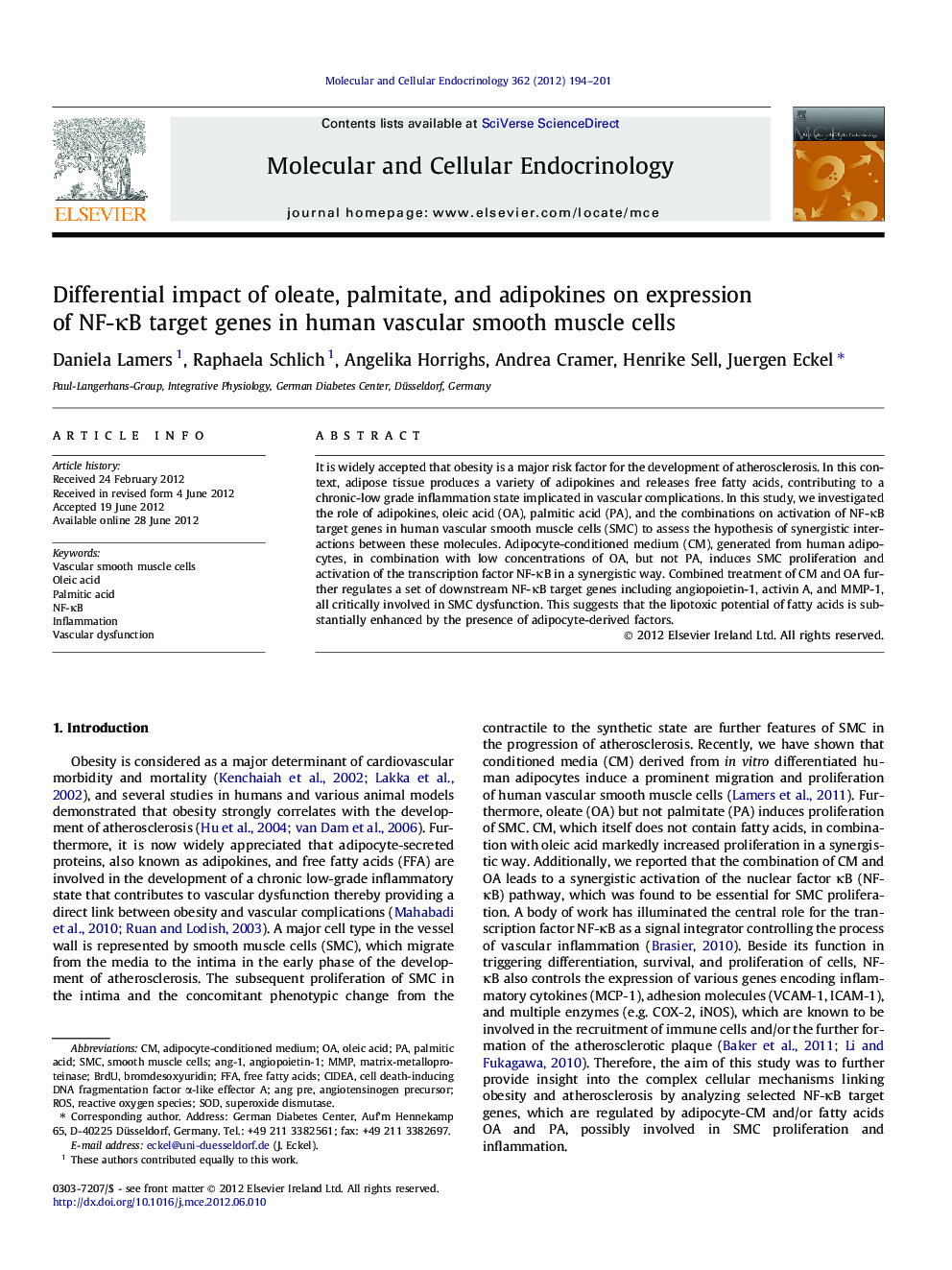| Article ID | Journal | Published Year | Pages | File Type |
|---|---|---|---|---|
| 2196291 | Molecular and Cellular Endocrinology | 2012 | 8 Pages |
It is widely accepted that obesity is a major risk factor for the development of atherosclerosis. In this context, adipose tissue produces a variety of adipokines and releases free fatty acids, contributing to a chronic-low grade inflammation state implicated in vascular complications. In this study, we investigated the role of adipokines, oleic acid (OA), palmitic acid (PA), and the combinations on activation of NF-κB target genes in human vascular smooth muscle cells (SMC) to assess the hypothesis of synergistic interactions between these molecules. Adipocyte-conditioned medium (CM), generated from human adipocytes, in combination with low concentrations of OA, but not PA, induces SMC proliferation and activation of the transcription factor NF-κB in a synergistic way. Combined treatment of CM and OA further regulates a set of downstream NF-κB target genes including angiopoietin-1, activin A, and MMP-1, all critically involved in SMC dysfunction. This suggests that the lipotoxic potential of fatty acids is substantially enhanced by the presence of adipocyte-derived factors.
► Adipocyte-conditioned medium in combination with oleic acid, but not palmitic acid, induces a synergistic NF-κB activation. ► The combination of adipocyte-conditioned medium and oleic acid regulates a set of downstream NF-κB targets critically involved in vascular dysfunction. ► Combining adipocyte-conditioned medium with oleic acid leads to downregulation of NF-κB targets ang-1, SOD-1, and MMP-1 in SMC.
